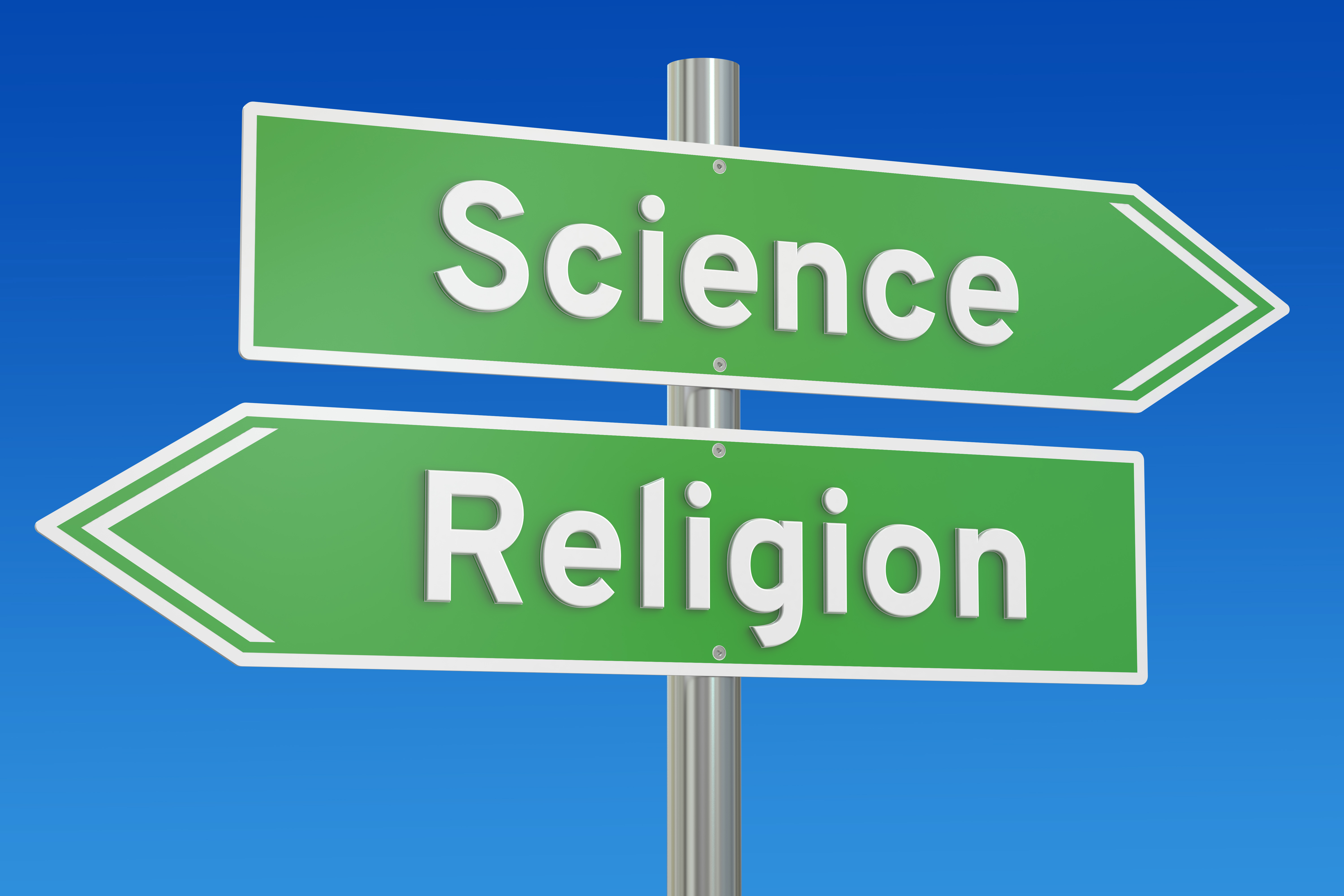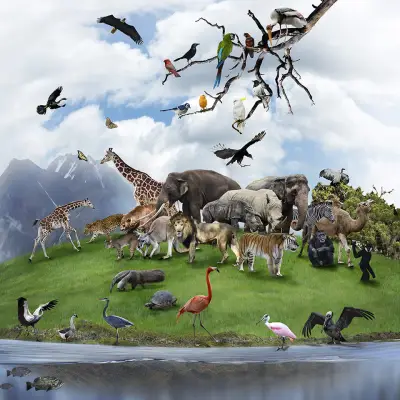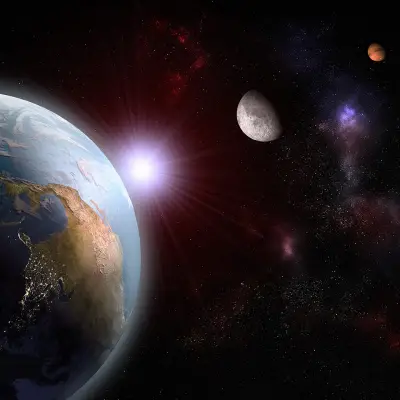Have you ever looked up at the night sky, marvelling at the stars and the vastness of it all, and wondered about the universe and our place within it? If so, you're already touching on the edges of cosmology, a field that combines science, philosophy, and even elements of religion to explore the fundamental questions about the universe's inception, structure, and ultimate fate.
Let's begin an engaging exploration of cosmology, breaking it down into its meaning, theories, relation to religion, and the career paths it offers. Our journey will reveal the interconnectedness of the universe and our understanding of it, offering insights and sparking curiosity along the way.
Jump to:
What is Cosmology?
Cosmology is the study of the universe. It's a deep dive into the very fabric of existence, seeking to understand the universe's birth, evolution, and eventual destiny. The definition of cosmology encapsulates both scientific and metaphysical inquiries into the universe's overall architecture and its governing laws.
Recommended for you!
Best SellersThe Basic Meaning and Scope of Cosmology
At the heart of cosmology is a curiosity that has driven humans for millennia: What is the nature of the universe? This question encompasses everything from the tiniest particles to the vast cosmic web of galaxies. Cosmologists use observations and theories to piece together the history of the cosmos, from the Big Bang to the present day and beyond.
Cosmological Theories and the Universe
Cosmology theories offer insights into the universe’s vastness and complexity. These theories are gateways to understanding the grand narrative of the universe.
The Big Bang Theory: The Dawn of the Universe
The Big Bang theory is one of the main concepts in cosmology. It proposes that the universe originated from an intensely hot and dense point approximately 13.8 billion years ago. This theory provides a compelling explanation for the observable expansion of the universe, the distribution of galaxies, and the cosmic background radiation—the afterglow of the Big Bang, observable as a faint glow in the cosmos. It's a foundational theory that sets the stage for all cosmological discussion, suggesting a singular beginning to everything we observe.
Inflationary Cosmology: Solving the Universe's Early Puzzles
Building on the Big Bang theory, the concept of cosmic inflation proposes a period of exponential expansion that occurred fractions of a second after the universe's inception. This theory addresses critical questions about the universe's uniformity and the distribution of large-scale structures. It posits that tiny quantum fluctuations were stretched to cosmic scales, laying the groundwork for forming galaxies and other cosmic structures.
Dark Matter and Dark Energy: The Cosmic Enigmas
The theories of dark matter and dark energy delve into the universe's most complex mysteries. Despite being invisible and undetectable by traditional means, dark matter is thought to comprise about 27% of the universe, inferred from its gravitational effects on visible matter and the cosmic microwave background. Dark energy, accounting for approximately 68% of the universe, is an even more mysterious force, driving the universe's accelerated expansion against the gravitational pull of matter. These concepts challenge our understanding of the cosmos, suggesting that most of the universe is made up of substances that cannot be directly observed.
The Evolution of Cosmological Theory
Cosmological theory is dynamic, continually reshaped by new discoveries and technological breakthroughs. Advances in telescope technology, for instance, have allowed us to observe the universe with unprecedented clarity, leading to discoveries that challenge and refine existing theories. Similarly, the advent of computational cosmology has enabled scientists to simulate complex cosmic phenomena, providing new insights into the universe's evolution.
The Intersection of Cosmology and Religion

Cosmology and religion often intersect, exploring similar questions about the universe's origin and purpose from different perspectives. Many find that cosmology and religious beliefs can coexist, each offering unique insights into the mysteries of existence.
A Shared Inquiry into Existence
Both cosmology and religion grapple with the questions that have captivated humanity since time immemorial: Why does the universe exist? What is its purpose? And what is our place within it? While cosmology approaches these questions through the lens of scientific method, religion offers interpretations grounded in faith and spirituality. Despite their differing methodologies, both are united in their pursuit of knowledge and meaning.
Harmony Between Science and Spirituality
There is potential for harmony between cosmological discoveries and religious beliefs. Many people find that the awe-inspiring revelations of cosmology — such as the vastness of the universe and the intricate laws that govern it — enrich their spiritual understanding and sense of wonder. Similarly, religious narratives and cosmological theories can sometimes echo each other, suggesting that the grandeur of the cosmos and the search for a deeper connection are shared human experiences.
Historical and Contemporary Dialogues
Historically, the relationship between cosmology and religion is complex, marked by moments of conflict and long periods of coexistence and mutual enrichment. Ancient religions and mythologies often incorporated cosmological elements, using stories of the cosmos to explain the world's origins and order. In contemporary times, many theologians, philosophers, and scientists engage in dialogue to explore how cosmological insights and religious beliefs can inform each other. Figures like Georges Lemaître, a priest and physicist who proposed the theory of the expanding universe, embody the potential for a productive intersection between these fields.
Cosmology in Religious Texts
Discussions about cosmology in sacred texts, such as the Bible, the Qur'an, and others, reveal that religious traditions have long pondered the nature of the universe. These texts often present cosmological ideas metaphorically, offering perspectives that can complement scientific understanding. For example, the concept of a beginning to the universe echoes religious narratives of creation, inviting reflection on the nature of time, existence, and the divine.
Embracing Multiple Perspectives
The intersection of cosmology and religion encourages a holistic view of our quest to understand the universe. It invites us to consider multiple perspectives, acknowledging the value of scientific inquiry while recognising the depth and richness spiritual interpretations bring to our understanding of the cosmos. In exploring this confluence, we open ourselves to a broader comprehension of the universe and our place within it, guided by both the light of the stars and the inner light of human belief and wonder.
Careers in Cosmology
Becoming a cosmologist means beginning a career dedicated to unravelling the universe's secrets. This field requires a strong foundation in physics and mathematics, as these are the languages in which the universe's laws are written. Whether through research, teaching, or applied science, cosmologists seek to expand our understanding of the cosmos, contributing to our collective knowledge and inspiring future generations.
Why Study Cosmology?
Studying cosmology is valuable for several reasons. It challenges us to think critically about the universe and our place within it, fostering a sense of wonder and curiosity. Moreover, the skills developed through the study of cosmology, such as problem-solving and analytical thinking, are highly transferable and sought after in many careers.

Frequently Asked Questions About Cosmology
How Do Cosmologists Measure the Age of the Universe?
Cosmologists use various methods to estimate the universe's age, with the Cosmic Microwave Background (CMB) radiation providing key evidence. By studying the CMB and the universe's expansion rate, cosmologists can trace back to the Big Bang, estimating the universe's age to be about 13.8 billion years.
What Role Do Black Holes Play in Cosmology?
Black holes are among the most fascinating and mysterious objects in cosmology. They serve as laboratories for testing theories of gravity and quantum mechanics. Understanding how black holes form, evolve, and affect their surroundings helps cosmologists gain insights into galaxy formation and the distribution of matter in the universe.
How Does Multiverse Theory Fit into Cosmology?
The multiverse theory suggests that our universe might be just one of many universes. While still a speculative area of cosmology, it raises profound questions about the nature of reality and the parameters that define our cosmos. Exploring the multiverse concept pushes the boundaries of cosmological theories and our understanding of physical laws.
Can Cosmology Provide Insights into the Possibility of Life Elsewhere in the Universe?
While cosmology primarily focuses on the universe's large-scale structures and dynamics, it lays the groundwork for astrobiology by describing the types of galaxies, stars, and planets that can exist. Understanding the variety and distribution of potentially habitable environments in the cosmos is a step towards exploring the possibility of life beyond Earth.
How Do Quantum Mechanics and Cosmology Intersect?
Quantum mechanics and cosmology intersect most prominently in the study of the early universe. The theory of cosmic inflation, for example, relies on quantum fluctuations to explain the large-scale structure of the universe. These intersections highlight the universe's smallest scales' influence on its largest structures.
What is the Future of Cosmological Research?
The future of cosmological research is bright, with new telescopes, observatories, and missions planned to explore the cosmic microwave background radiation, dark matter, dark energy, and exoplanets. These advancements promise to deepen our understanding of the universe, challenging existing theories and potentially revealing new cosmic phenomena.
How Can I Start a Career in Cosmology?
A career in cosmology typically begins with a strong foundation in physics and mathematics, followed by specialised studies in cosmology or astrophysics at the postgraduate level. Gaining research experience, publishing in scientific journals, and staying abreast of the latest discoveries are important steps for aspiring cosmologists.
Recommended for you!
Best SellersStudy Cosmology for £29
Dive into the mysteries of the cosmos with our Cosmology Diploma Course, crafted to unveil the secrets of the universe through accessible and engaging learning.
Why Centre of Excellence?
- Accessibility: Education should be easily accessible to everyone. That’s why we’ve made our Cosmology course affordable, ensuring that the universe's wonders are within reach for everyone.
- Flexibility: Our course is designed to fit into your life. Learn about the cosmos at your own pace, on your own schedule, and from the comfort of your home.
- Comprehensive Curriculum: From the Big Bang to black holes, our course covers the vast expanse of cosmic phenomena. With a curriculum as boundless as space itself, you'll explore the universe's mysteries.
- Supportive Learning Environment: Enrolment comes with personalised support from expert tutors and access to a community of fellow astronomy enthusiasts.
Special Invitation
We're excited to offer you a journey through the cosmos with our Cosmology Diploma Course, now available for an extraordinary price of £29!













